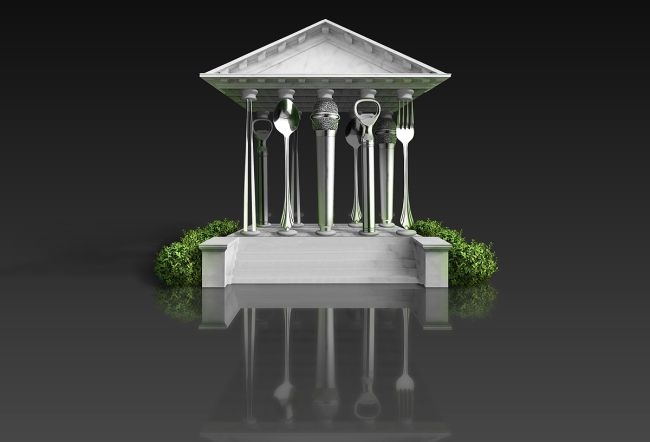May has long been a month of festivity in South Korea, with special days to celebrate children, parents and teachers, among others.
The month is also known for college festivals, where university students celebrate the balmy weather as well as their campus life.
The festivals have long been a part of youth culture in Korea, as well as student activism and even sports competition among major universities in Seoul.
“I would get very excited for the festivals,” said a Seoulite who attended one of the major universities in Seoul in the 2000s.
“There would be celebrities performing, and outdoor drinking vendors across the campus. It was fun meeting new people there. Cheering for our school during the sports competition was also very exciting -- very similar to cheering for the World Cup.”
The festivals have existed since the 1960s, and have evolved throughout the years.
The month is also known for college festivals, where university students celebrate the balmy weather as well as their campus life.
The festivals have long been a part of youth culture in Korea, as well as student activism and even sports competition among major universities in Seoul.
“I would get very excited for the festivals,” said a Seoulite who attended one of the major universities in Seoul in the 2000s.
“There would be celebrities performing, and outdoor drinking vendors across the campus. It was fun meeting new people there. Cheering for our school during the sports competition was also very exciting -- very similar to cheering for the World Cup.”
The festivals have existed since the 1960s, and have evolved throughout the years.

In the 1960s, when attending a college was considered a privilege, the festivals offered a rare opportunity for Korean students to get a glimpse of “Western” culture, such as Western-style folk dances, according to local historians.
In the 1970s, the festivals started featuring sports competitions, arts exhibitions and academic conferences.
Then in 1972, South Korea’s former President and military strongman Park Chung-hee declared martial law and recast the constitution into a highly authoritarian document.
Those involved in student activism against Park’s authoritarian government started using the festivals as a channel to express their political voices.
But there were also students who chose not to get involved in activism and simply wanted to have fun. It was also in the 1970s where playing an acoustic guitar outdoors became popular among college students.
Things became more tumultuous in the 1980s. In 1980, the Gwangju Democratization Movement took place; hundreds and possibly thousands are believed to have been killed when Gwangju residents rose up against the military government led by former President Chun Doo-hwan.
In spite of the authoritarian government’s control of the media at the time, university students who were involved in pro-democracy activism were regardless deeply affected by the 10-day turmoil in Gwangju.
It was in the 1980s that the festivals began to feature Korea’s traditional customs and culture, such as the traditional Korean mask dance and the traditional Korean percussion music performances, as a way to resist against the military government.
In the 1992, Kim Young-sam became the first civilian president in over 30 years. It was also in the 1990s when earlier versions of today’s K-pop took the nation by storm. College festivals started featuring celebrities and popular singers; celebrities continue to appear in college festivals to this day.
Today, the festivals are going through a number of changes. The Ministry of Education has recently banned university students from selling alcohol on campus during festivals. Some also criticize the practice of hiring celebrities to perform at university festivals.
More socially-conscious events are also taking place on campus, influenced by current affairs such as the ongoing #MeToo movement,
“I think university festivals have been an important part of the country’s youth culture, regardless of the existing problems,” said another Seoulite who attended a college in Seoul in the late 1990s.
“Many young people fought for democracy while others made meaningful memories for themselves by taking part in youth culture in the country. I think both -- student activism and campus culture -- have been a meaningful contribution to our culture and democracy.”
By Claire Lee (dyc@heraldcorp.com)








![[KH Explains] How should Korea adjust its trade defenses against Chinese EVs?](http://res.heraldm.com/phpwas/restmb_idxmake.php?idx=644&simg=/content/image/2024/04/15/20240415050562_0.jpg&u=20240415144419)










![[Today’s K-pop] Stray Kids to return soon: report](http://res.heraldm.com/phpwas/restmb_idxmake.php?idx=642&simg=/content/image/2024/04/16/20240416050713_0.jpg&u=)